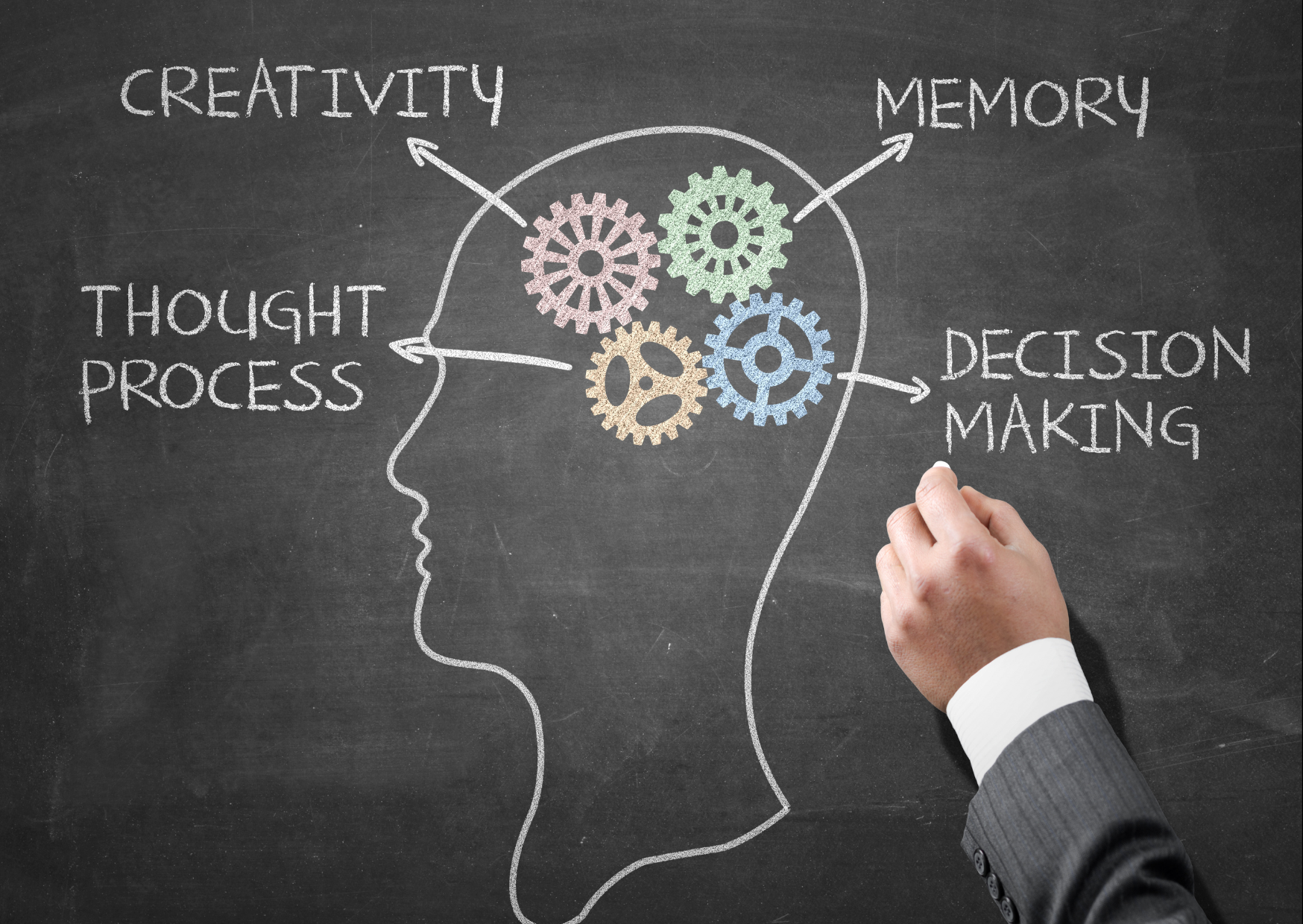
Executive functions are broadly categorized into core and higher-order executive functions.
Core executive functions include inhibitory control, working memory, and cognitive flexibility. From these, higher-order executive functions are built such as problem-solving, reasoning, planning and prioritizing, sustained attention, and time management.
1. Core Executive Functions
Inhibitory Control
Inhibitory Control is the ability to manage your behavior and impulses. It is being selectively focused on what is important and not giving in to temptation. It includes delaying gratification.
This can be seen when someone chooses a healthy diet over getting caught up in a junk food habit. Most people have some degree of inhibitory control, but some are better at managing their impulses than others.
It is most predictive of the long-term outcome of all executive functions. Individuals who are less impulsive show more persistence and discipline. They tend to have better positive outcomes such as doing well in school, getting better-paying jobs, and having less trouble with the law.
Working memory
Working memory is the ability to hold information in the mind and work or play with it. Just keeping the information in mind is short-term memory. But doing something with the information you've in mind is working memory.
It is important for virtually all aspects of life, including holding a conversation. This skill helps you hold information in mind after it has been learned and stored in short-term memory.
It supports the integration of information into long and short-term recall, adaptive thinking, and the ability to shift attention between ideas promptly.
Cognitive Flexibility
Cognitive Flexibility is the ability to think outside of or see things from a different perspective. It allows you to shift your thinking from one view to another.
With cognitive flexibility, you can solve problems in unique ways and have creative solutions. It also involves a change of mindsets, perspectives, ideas, or viewpoints.
Attention to detail is important, but thinking of new ways to look at old problems requires a different set of skills. Great thinkers see things from different perspectives. That is cognitive flexibility, and it's the key to success in any environment.
2. Higher Order Executive Functions
Problem-solving
Problem-solving is the ability to identify and analyze a problem, collect relevant information, formulate solutions and implement the solution. This is the process of determining what action needs to be taken.
Problem-solving involves other executive functions strategies, including sustained attention, planning, task initiation, and time management skills.
The ability to solve problems is a beneficial skill, regardless of the type of problem you are confronted with.
Reasoning
This is the ability to make sense of information, analyze, compare, contrast, make inferences and utilize other higher-order thinking skills.
Being able to think analytically is an important skill for success in today's competitive world. Reasoning as an executive function skill improves as problem-solving skills improve. The link between reasoning and problem-solving is called the "pathway to thinking."
Planning and Prioritizing
Planning and prioritizing are the core functions that help you to organize and get things done. You can't focus on just one task if you have to keep switching between plans.
This skill helps you to manage large projects and anticipate problems before they occur. Planning/prioritizing has three components: putting goals first, organizing material in categories, and setting concrete deadlines for tasks.
Sustained attention
Sustained attention is the ability to stay focused on a task for a longer period.
This is one of the hardest skills to improve because people who have this ability appear to be able to look at one thing and block out all other information around them.
Time management
Time management is about using your time wisely, learning to plan your day, and setting manageable goals.
This skill helps you manage things such as time spent outside of class, time spent on homework, deadlines, and holidays. It also helps reduce stress.
In the end, executive function skills are an important part of learning for students and adults. They provide the missing link for helping students become effective in their day-to-day life.
How we can help you...
At Good Hope Tutoring Services, our tutors are experienced in executive function coaching and can help your child develop the executive function skills they need to succeed in school and life. Book a FREE 15 minutes consultation today to see how we can help you.


